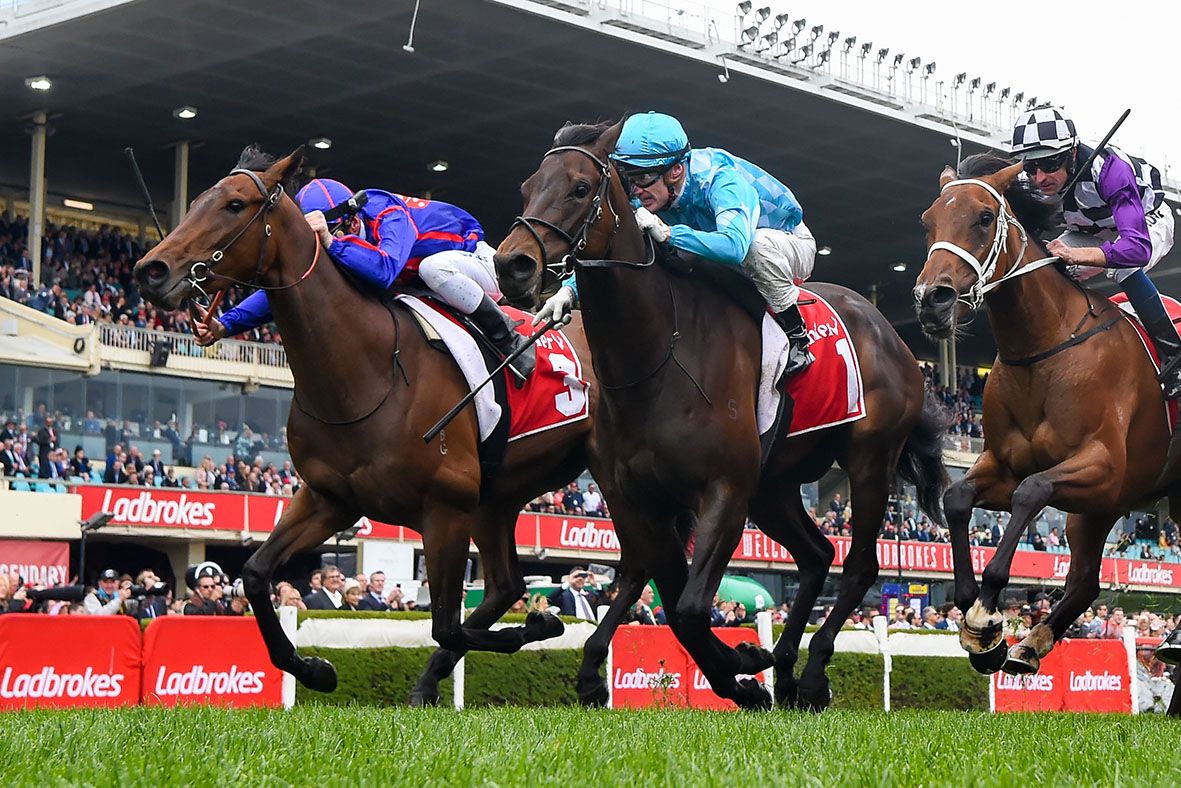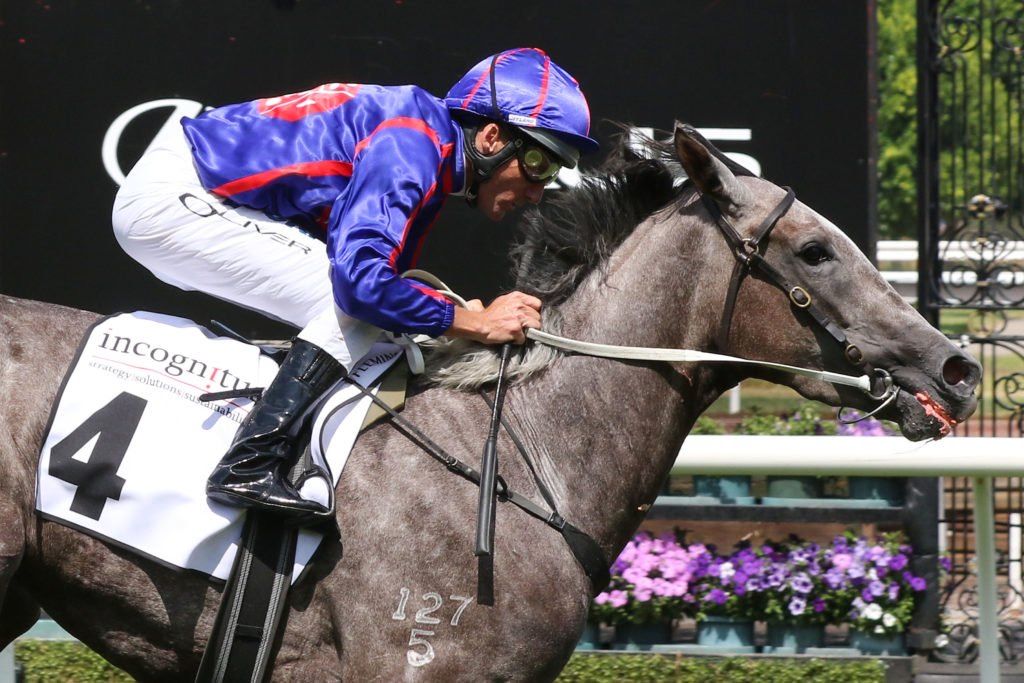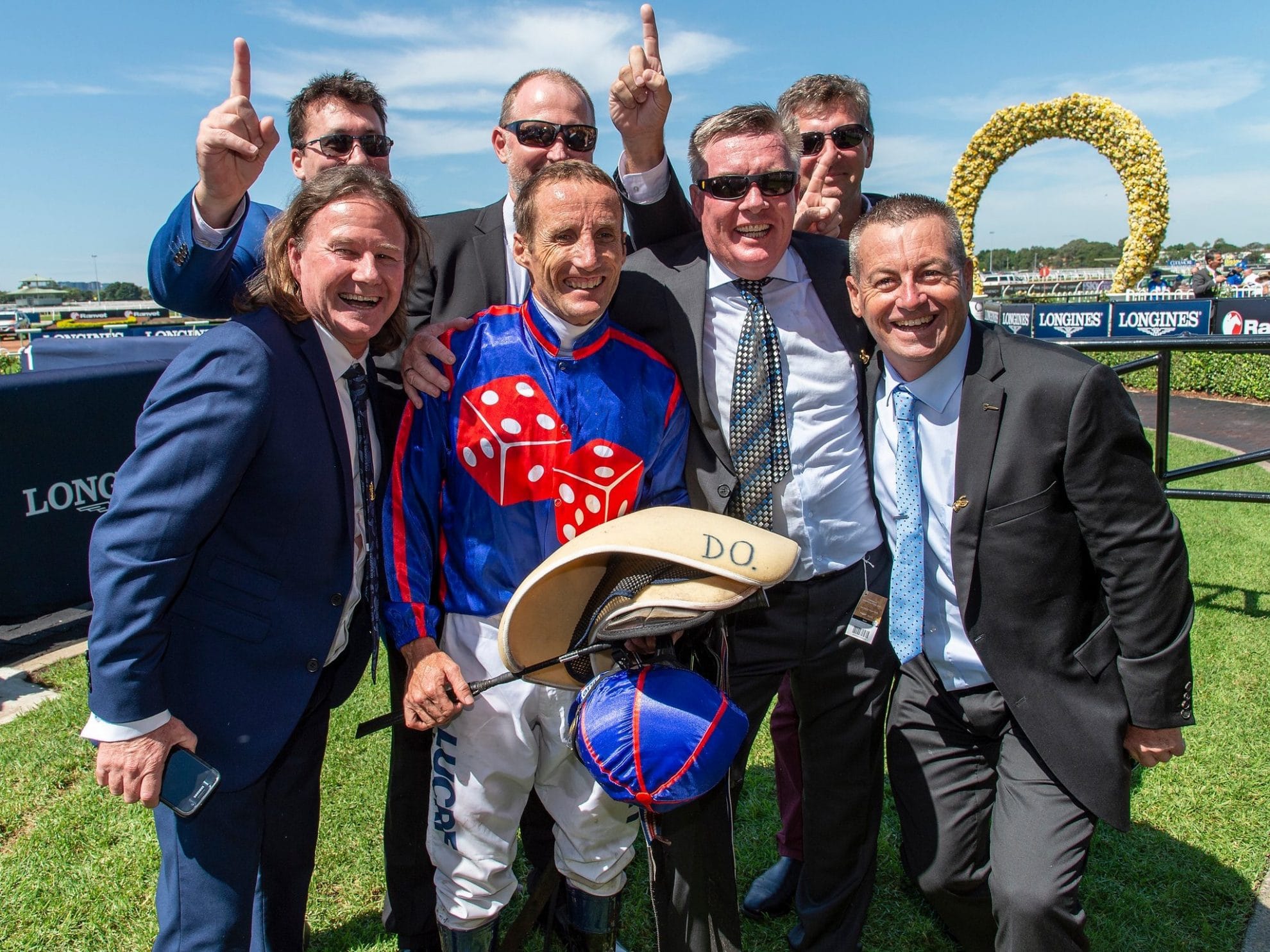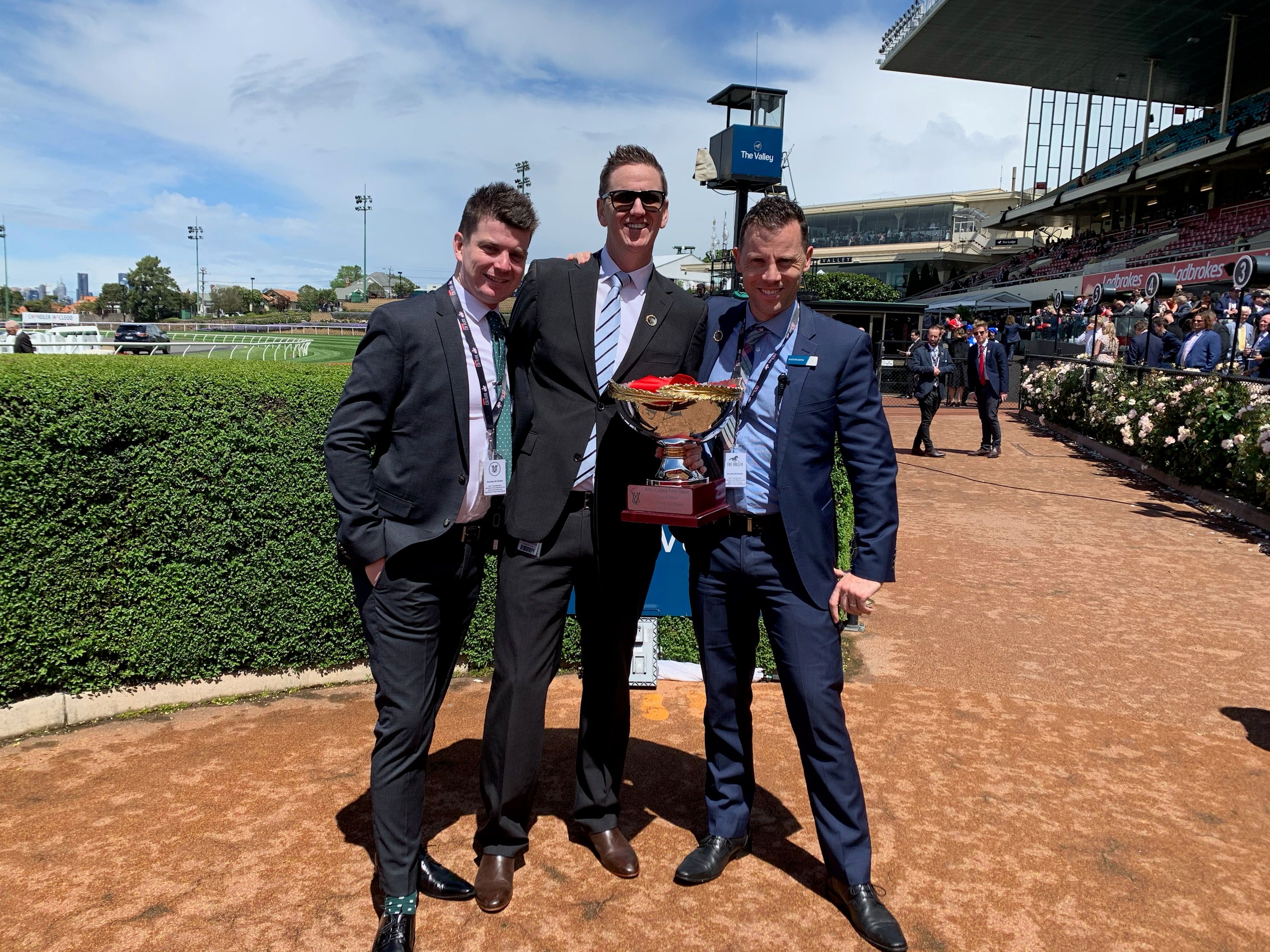RACE HORSE SYNDICATION – The Ultimate Guide 

What is race horse syndication?
Race horse syndication is when the total cost of a racehorse is divided into smaller shares to allow multiple people to own a horse. What was once considered an elitist sport is now being made accessible to everyday Australians.
Ever dreamed of owning a racehorse but:
– thought you couldn’t afford it?
– didn’t know where to start?
– didn’t know who you could trust?
Race horse syndicators are changing that. They allow everyday Australians to experience racehorse ownership at only a fraction of the cost. The trick is to know what to look for and what questions to ask.
This guide goes through everything you need to know but didn’t know who to ask.
So let’s get cracking.
1. Race horse syndication fundamentals
1a. Why syndicate?
One of the real benefits of horse syndication is that it provides a great entry point for everyday people into the racing industry.
It also provides a great avenue for socialising and networking with likeminded individuals. It also allows many day-to-day issues to be managed by the syndicate manager, including general communications regarding your horse and knowing where your horse is and why.
Syndicators can often get you greater access to your trainer. The reason is because syndicators often have established relationships with trainers, and may have multiple horses together.
Given how busy trainers are with all their horses, it makes sense that a trainer may spend more time liaising with their syndicators, than with one owner who has a part share in one horse.
1b. Who’s allowed to syndicate horses?
Anyone can legally divide up the cost a racehorse and sell off shares to family and friends. What you can’t do, is advertise racehorse shares for sale, or act as a professional syndicator, without an appropriate licence in place.
All professional syndicators must have an Australian Financial Services (AFS) licence or operate as an authorised representative of an AFS licence holder. The licence number should be listed on the syndicator’s website, and on any horse related advertising they release.
1c. Who governs Australian race horse syndication?
Horse racing syndication is regulated by the ‘Australian Securities and Investments Commission’ (ASIC), with compliance handled at a state level by the appropriate racing-associated governing body. In the case of Roll the Dice Racing in Victoria Australia, this is Racing Victoria.

2. How to protect yourself against dodgy syndicators
2a. What are the risks involved in race horse syndication?
The main risk is not buying with an approved syndicator (see below). In Victoria, you can find a list of all approved syndicators at Racing Victoria. Approved syndicators will either be listed as an Australian Financial Services Licensed Promoter, or as an Authorised Representative Permit Holder (ie Roll the Dice Racing), both of which are issued by ASIC.
For other states, check your relevant racing-associated governing body. You should also do your homework as to who the syndicator uses as their bloodstock agent, and who will train your horse. Both should come highly regarded, with a good reputation within the industry, and years of experience to back it up.
If you’re not sure, drop us a line, we are always happy to help.
2b. How can I protect myself against dodgy syndicators?
When dodgy syndicators take people for a ride, by either not investing their money properly, or making money off their owners in inappropriate ways, it doesn’t just hurt those involved, it damages the reputation of the entire racing community. We hope that by keeping people informed, they can protect themselves against this. We encourage you to ask all the questions.
2c. What documentation do I need from my syndicator?
For any commercial syndications, you should receive a Product Disclosure Statement (PDS) as well as a Deed of Sale following the purchase of a racehorse share. In the case of private syndications amongst family and friends, a PDS is not required, but you should still expect to see a Deed of Sale. Details regarding all costs to date and ongoing costs as well as prize money distribution etc should be available in this Deed.
2d. What if my syndicator says they don’t need an AFS license?
You should proceed with caution. Here’s why:
Approved syndicators are required, as part of their AFS licence/permit holder agreement, to set up a trust account for each horse following its purchase. This means that when you buy a horse share, all funds are paid directly into that trust account and cannot be used in any way by the syndicator other than its intended purpose, which is to pay for the purchase of the horse. This measure is in place to protect both the auction houses or vendors waiting to receive funds, as well as the investors, or owners, who have paid money in good faith they are buying a share in a racehorse. Buying with an approved syndicator can give you reassurance that your money is safe and is being used for its intended purpose.
When you pay your share it should go into a Trust account, not a personal account. Bank account details, including the account name, will be listed on the PDS. The onus is on you as the owner to check this.

3. The cost of owning a racehorse
3a. How much does it cost to buy a racehorse share?
This is where people often get themselves into trouble, by not understanding the real costs involved in racehorse ownership. There are three main types of costs:
- initial share price
- ongoing costs
- unexpected costs
And it’s important you understand what you actually get for your money.
3ai. What does the initial share price include?
This differs between syndicators. As an example, at Roll the Dice Racing, the share price covers the horse’s purchase price + syndicate margin + GST, the race series entry fee, the horse being broken in (4 week education), 3 months fees for standard vet checks, spelling, agistment and transport, and 1 year’s insurance. Insurance covers mortality and life-saving surgery, and can be renewed annually at each owner’s discretion. Always check with each syndicator to understand exactly what their initial share price includes.
Also remember to look at whether the price represents value for money. Colts will generally cost more than fillies because of their potential residual value. The horse’s pedigree is also likely to have a significant impact on their sale price.
3aii. What ongoing costs should I expect?
You should expect ongoing fees for the care and training of your horse. Depending on which stage of their racing preparation they are in, ongoing fees will relate to their
- agistment (spelling)
- pre-training
- training
- transport
You may also be asked to pay a syndication management fee.
3aiii. Unexpected costs
Unexpected costs are often related to injury and illness, and the required veterinary work, as these types of things can’t be predicted.
Another type of unexpected cost is if your horse is nominated for a race that requires significant travel, or air-freight. Nominations for these races are at the discretion of the trainer. Keep in mind, if your horse is being nominated for one of these interstate or international races, it usually means your horse has done extremely well, already won significant prize money, and that your trainer thinks your horse is an excellent chance for taking out the race. As always though, check with your syndicator for details.
3b. Why am I being asked to pay a syndication management fee?
Many syndicators charge a management fee, and these are usually in line with the level of service provided. Some syndicators provide weekly video, audio, and text updates while the horses are in training, and to a lesser extent while the horses are spelling or in pre-training. Some of these more intensive-style syndicators also manage the billing process so you only pay one bill each month, rather than fielding multiple invoices from various services. On the other hand, other syndicators step back once the shares have been sold, and owners need to manage getting their own updates on the horse’s progress from the trainer and other key horse personnel, as well as managing multiple payments to various parties responsible for their horse’s care. It really depends what level of service you’re after, and what you can afford to pay.
3bi. How and when will I be billed?
Every syndicator has a different payment model. These can range from an annual fee that covers everything, to those that hold prize money until end of preparation. Some prefer to have their service providers bill owners directly (meaning multiple bills for the owners), whereas others provide consolidated monthly billing. Some syndicators may also take an additional cut on prize money for the bigger races. It all depends on the syndicator, so just make sure you ask.

4. Owner privileges
4a. Who names the horse?
This differs between syndicators and you just need to ask what each syndicator’s process is.
As an example, at Roll the Dice Racing, we ask owners to submit their preferred names via email and a shortlist is created. The shortlist is then sent back to the owners, and they are asked to nominate their top 3 names from the list. The top 3 preferred names are submitted to Racing Australia. Sometimes the preferred choice is not given clearance due to it being too similar to another horse and the second or third name is chosen instead.
4b. What happens to prize money?
Again, this depends on the syndicator. Some syndicators take a percentage of the prize money, while others hold any prize money for the duration of the horse’s preparation, and release funds once the horse is spelled. This should be detailed in the PDS or the Deed of Sale documentation.
It should be noted that it is industry standard for the trainer to take a percentage of any prize money, as well as the jockey to a lesser degree. Trainers may also take an additional cut from group level races. This will all be detailed in your PDS or Deed of Sale.
At Roll the Dice Racing, we do not handle any prize money on behalf of our owners. All prize money is transferred directly from the relevant racing body (ie Racing Victoria) to each individual owner or syndicate in the horse. Banking details should be filled out upon taking ownership of the horse.
4c. Who keeps the trophy?
Once again, this varies from syndicator to syndicator, but should be detailed in your PDS. Replicate trophies can be made up for owners at their own cost.
4d. How many people can be in a syndicate?
A 5% share or greater will get your name in the race book. If that 5% share is itself made up of multiple owners, or a friends and family syndicate, they can register their own syndicate name with Racing Victoria that can sit under your syndicator. This costs $275 per syndicate, and can register up to 20 individuals. Race day privileges, however, may vary according to availability.
4e. What owner privileges can syndicate members expect on race days?
All named shareholders of a licensed syndicator receive a member’s pass, guest pass, and a mounting yard pass, as well as a card from Racing Victoria that provides free admission to whichever racecourse your horse is racing at. Syndicate members also gain entry to owners’ rooms where complimentary food and drinks are usually served. Named shareholders of a family and friends syndicate do not receive a mounting yard pass unless they are the syndicate manager, but should expect to receive all other owner privileges.

5. The syndication process
5a. Who chooses the horse?
Some syndicators have a dedicated bloodstock agents, while others may choose the horses themselves. Some may also syndicate horses purchased by one of their trainers. At Roll the Dice Racing, we work closely with renowned bloodstock agents, John Foote, and Jeremy Rogers, to ensure we purchase the highest quality horses at the most affordable prices.
5b. How do I get updates about my horse?
This should be clarified with your syndicator, as each will provide varying levels of communication. Some syndicates will provide weekly communication via video, audio, and text updates from the trainer and/or jockey as part of their service. Others simply manage the buying process, and it is then up to you to follow up with trainers, and other care personnel about the horse’s progress. Keep in mind, a downside of being a shareholder without a dedicated comms person to manage the horse updates, is that the trainers and other personnel are usually busy, and it can be difficult to obtain information about your horse when you want it.

6. Where can I find horse shares available to buy?
The easiest thing is to go straight to your syndicator’s website or social pages and check out which horses are available. But if you’re not sure who’s out there, or whom you feel comfortable with, syndicated horses are often advertised on bloodstock.com.au. Getracing.com also lists all available racehorse shares sold through approved syndicators. Alternatively, if you’ve found the syndicator you want to invest with, but haven’t yet seen a horse you want to buy, some syndicators also take expressions of interest, and/or you can put your name on a waitlist to be given first options on future purchases.
If you want to check out what we’ve got, have a look at our available horses, or better yet, get on our email list so you’ll always be first in the know for ALL our future purchases:
Conclusion
The big takeaway if you haven’t already guessed, is simply: do your homework…know what questions to ask.
Anything else you still want to know? Drop us a line, we’re always happy to help.
